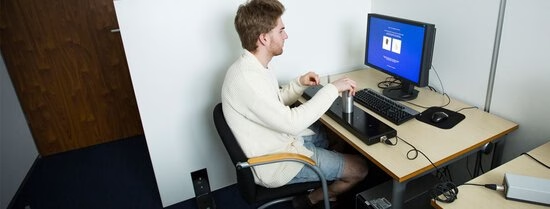For your own and others’ safety it is important to protect your IT equipment. Failure to do so may not only result in your data or money being stolen, but could also enable hackers to exploit your computer, phone, tablet or internet connection to do harm to others.
The universities workspaces and servers are equipped with various measures to prevent abuse. Updates will be installed automatically, a virus scanner checks the files being accessed, and unknown software cannot be used without additional action. All these measures still assume responsible use of the facilities, with you being aware of risks and avoiding these whenever possible.
Besides the EUR facilities you may also be using your own equipment to do your work for the university. In that case this equipment needs to be properly protected too
The most important things to make sure you’re dealing with IT in a secure way are:
Protect your accounts
Never give your username and password to anyone else, no matter how much you trust this person or party. If your password and username are required to take a certain action, the intention of this requirement is to make sure you are taking the action yourself!
Should someone else be required to take any action on your behalf, this person or organization will be enabled to do this using their own account information. There are also other ways to facilitate such actions, such as shared network locations and mailboxes, delegation of duties during holidays and the possibility to have the Service Desk ‘look over your shoulder’ remotely without needing your personal account information.
Keep software up-to-date
Both your operating system (Windows, Linux, iOS, etc) and installed software will need frequent security updates. Install these as soon as possible, or allow automatic updates whenever possible.
Make sure you have a virus scanner installed & active
A virus scanner checks files for the presence of known viruses. Virus scanners with educational discounts are available at www.surfspot.nl for EUR students and employees.
Have a firewall inspect all network traffic
A firewall is a barrier between the network and your equipment. This functionality can be part of the operating system (i.e. Windows firewall), but also in your modem or router. The settings will not always be enabled by default, so make sure they are configured properly.
Common sense
- Don’t leave your e-mail on a webpage unless required. Use a fake address if necessary.
- Don’t open attachments or links in e-mails from unknown senders
- Don’t use the same password for EUR IT services and other accounts
- Use ‘meaningless’ passwords with letters, numbers and symbols in them. These passwords are harder to guess.
- Don’t download software from websites that can’t be trusted without any doubt and limit your downloads to the minimum required.
- Make sure you’re not “enabling access” to larger parts of your computer then intended when using file sharing software.
- Disable “File and Printersharing for Windows networks” if you don’t really need it
- Ordering online with your creditcard? Only do so with trustworthy companies providing a secure connection (https). If possible, use a credit card with a very low spending limit.
- Don’t think it’s only happening to others!
